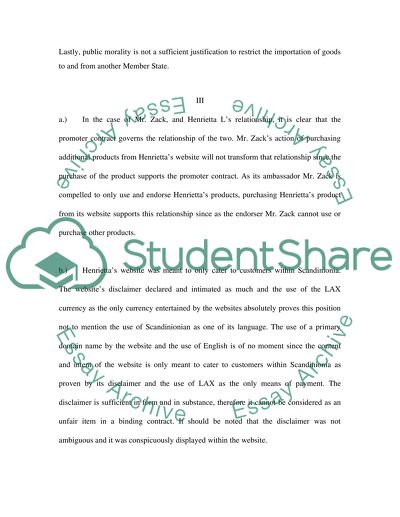Cite this document
(“EU Law Essay Example | Topics and Well Written Essays - 5000 words”, n.d.)
Retrieved from https://studentshare.org/law/1394270-eu-law
Retrieved from https://studentshare.org/law/1394270-eu-law
(EU Law Essay Example | Topics and Well Written Essays - 5000 Words)
https://studentshare.org/law/1394270-eu-law.
https://studentshare.org/law/1394270-eu-law.
“EU Law Essay Example | Topics and Well Written Essays - 5000 Words”, n.d. https://studentshare.org/law/1394270-eu-law.


